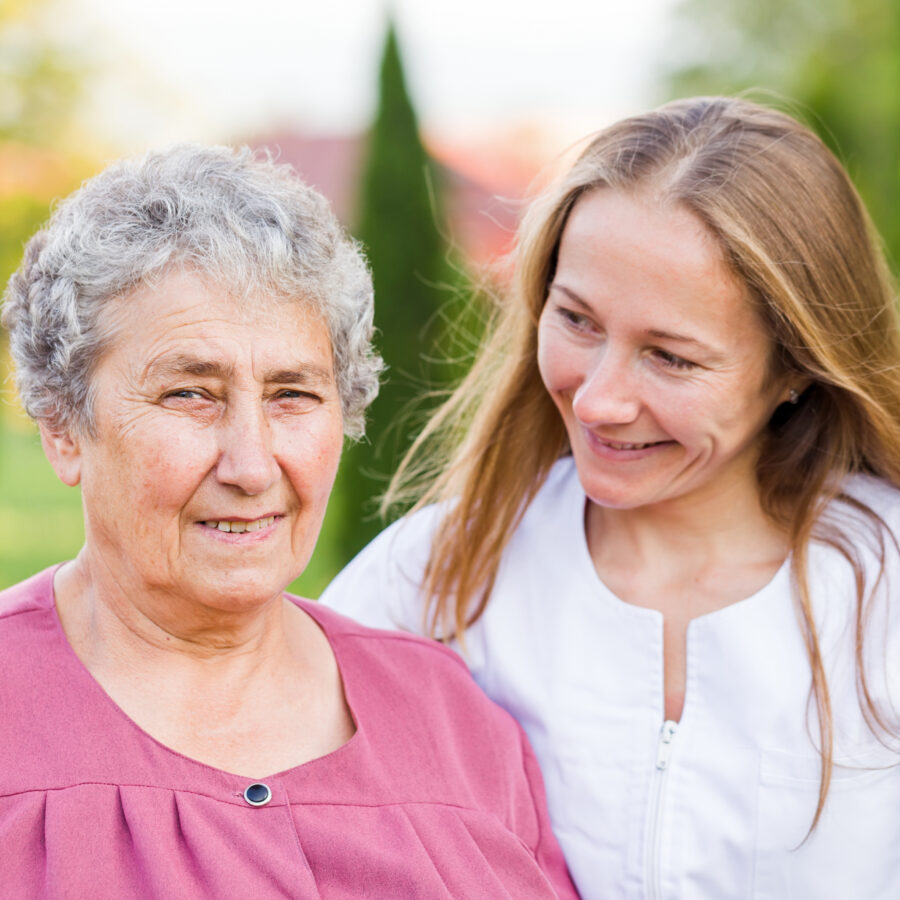One of the toughest decisions we are faced with as caregivers is determining when Mom or Dad can no longer safely live in their home. Moving a parent into a community that offers assisted living or skilled nursing care can be extremely emotional and lead to caregiver guilt for many reasons:
- Fear of new surroundings. Our home is our sanctuary — the place where we feel the most comfortable. When you’ve lived in a house for several years or even decades, you could probably navigate your entire home wearing a blindfold. You know where every squeak in the floor is located and the decorations and layout are exactly the way you like them.
- Sentimental value. Your home is filled with the memories of a lifetime that make it a special place. Think about it — when you sit in the family room, don’t you think back to when your children or grandkids were young, excitedly opening their presents on Christmas morning?
- Worrying about the future. Some people view that moving a senior out of their home for additional care and services as the “beginning of the end” — an admission that your senior loved one’s health or cognitive function is in decline and they are unable to take care of themselves anymore. Many caregivers blame themselves, thinking that if they worked harder or prioritized differently, maybe their senior loved one wouldn’t have to make such a “drastic move.”
For all these reasons and more, your elderly loved one may protest the move. They might accuse you of thinking they are a burden or of trying to avoid responsibility for them. Emotionally, it can be a lot to take. Still, you know deep down inside that it’s the right thing to do.
So, how do you move forward?
First, it’s important to remember that moving your elderly parent into an assisted living or skilled nursing environment doesn’t have to be perceived negatively. You’re not moving Mom or Dad as a punishment or out of convenience; rather, you’re doing it for their safety and well-being. Knowing that they’re going to be eating well, taking their medication as prescribed and on time, and not worrying about home maintenance or falling victim to financial scams against seniors should at least somewhat ease your mind and any caregiver guilt.
In their new location, Mom or Dad will meet people their own age with whom they have things in common, which is preferable to sitting in their empty house hoping someone will come visit them. Many senior living communities host social events that give your senior loved ones plenty to look forward to. And family is welcome to visit as frequently as desired.
Second, it’s important to be able to get the help you need to take care of a senior loved one. After all, if you get sick or are unable to do your job, who will take care of them? We must respect our physical and mental limits in order to take care of our most important responsibilities. We can’t surrender to guilt. Instead, we must learn how to navigate it effectively.
Tips for dealing with caregiver guilt:
- Don’t keep it bottled up inside you. Talk about it and acknowledge it. Once you take on the problem, then you’re better equipped to handle it.
- Stop expecting perfection. No one can do everything by themselves. We need rest and a mental break. Don’t beat yourself up for the things you can’t do, instead focus on the things you’re good at and the ones you have accomplished. Stay focused on the main goal of making sure your senior loved one has the best quality of life possible. Celebrate the good times and the decisions that work out and, most importantly, accept that you’re doing the best you can!
- Ask for help. Maybe it’s asking your siblings or your kids to pitch in and help. Or, possibly, it’s just asking your spouse or a friend to lend an ear and let you vent about what’s on your mind. Either way, you shouldn’t feel obligated to take on all the work by yourself. Often, people don’t realize what you’re going through if you don’t let them in on it. Plus, it helps us feel better about our decisions when we run them past people whose opinions we value.
- Think of yourself. Make time for the things you enjoy and give yourself a break. It’s important to clear your mind to make sure you don’t get burned out so you can continue to be a person your senior parent can depend upon.
The bright side about caregiver guilt is that it’s temporary. Many seniors become comfortable with their new surroundings quickly and – whether or not they admit it – begin to enjoy the freedom from responsibility and the social opportunities that come with the change. While things might seem like they’re turned upside down now, it won’t be long before the tough time passes, and you’ll realize you did the right thing.
Want to find out more?
If you’d like to stay up to date with Bethesda Health Group, sign up here to receive our blog and newsletters!
"*" indicates required fields
Related Articles
Want to find out more?
If you’d like to stay up to date with Bethesda Health Group, sign up here to receive our blog and newsletters!
"*" indicates required fields



